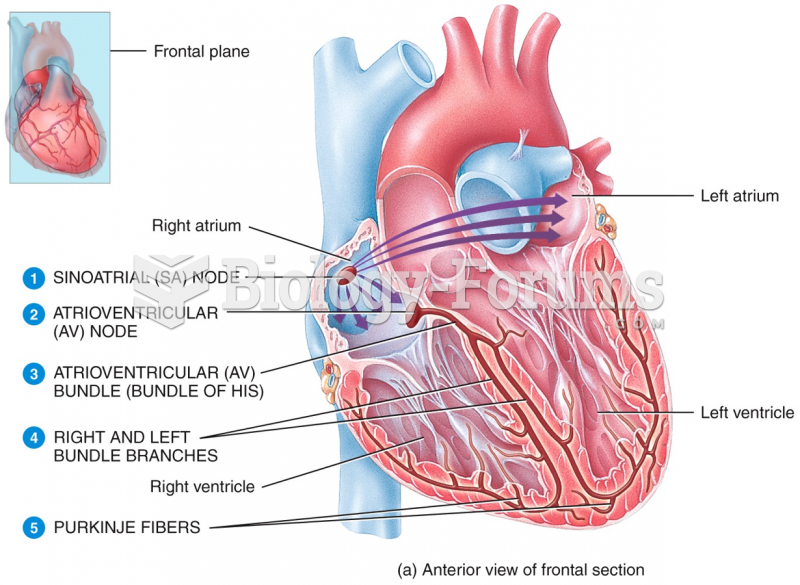|
|
|
Hippocrates noted that blood separates into four differently colored liquids when removed from the body and examined: a pure red liquid mixed with white liquid material with a yellow-colored froth at the top and a black substance that settles underneath; he named these the four humors (for blood, phlegm, yellow bile, and black bile).
In the United States, an estimated 50 million unnecessary antibiotics are prescribed for viral respiratory infections.
When intravenous medications are involved in adverse drug events, their harmful effects may occur more rapidly, and be more severe than errors with oral medications. This is due to the direct administration into the bloodstream.
More than 34,000 trademarked medication names and more than 10,000 generic medication names are in use in the United States.
The B-complex vitamins and vitamin C are not stored in the body and must be replaced each day.







